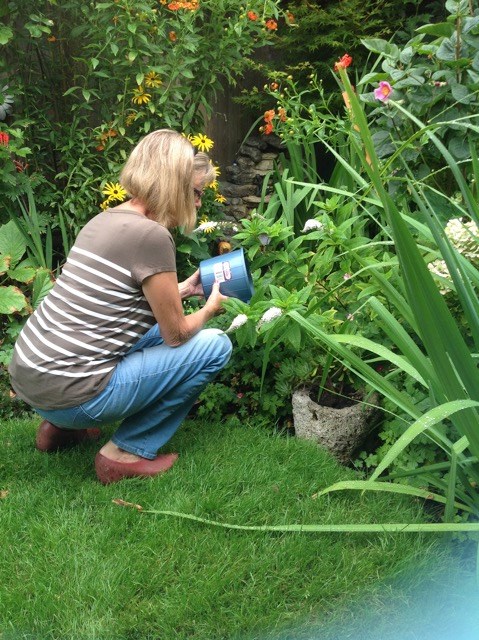Just when we thought that we were in for a wet, dreary summer, along came a stretch of dry, hot weather.
Last year’s drought reminded us that water is not a renewable resource at certain times of the year.
Currently the City of Richmond is in stage one of watering restrictions. Stage one includes lawn sprinkling restrictions and are in effect from May 15 to Oct. 15.
Even-numbered residential addresses may sprinkle lawns Monday, Wednesday and Saturdays mornings from 4 - 9 a.m.
Odd-numbered residential addresses may sprinkle lawns Tuesday, Thursday and Sunday mornings 4 - 9 a.m. We can hand water at any time but encourage you to be thoughtful about your watering habits.
Richmond Garden Club recommends letting your lawn go “golden.” Leaving grass clippings on your lawn after you mow will act as a mulch.
Once the rains return with flourish, lawns will return to green in no time.
As we stretch into the hottest month of the year and with little rain predicted ahead, it is important to continue to hand water your flowers, vegetable gardens and especially your potted plants. Try to use grey water wherever possible in your flower gardens.
Grey water consists of recycled water from your sinks, bathtubs and showers.
During this time of water shortage, grey water can be useful, but it should be used with care.
Grey water varies in quality and may contain contaminants such as soap and detergents. Fortunately, soil and potting composts are effective at filtering them and the residues can sometimes act as a mild fertilizer.
To minimize bacterial growth, grey water should only be saved for 24 hours.
Grey water should not be used on edible crops due to contamination of pathogens in the water. Softened tap water can damage soil due to the salts used in them. Use only in an emergency.
August is traditionally vacation time, so make sure you enlist the help of friends and family to look after your gardens while you are away.
When you are at home, take time to prune summer-flowering shrubs.
As you can see, this is not the time to be lazy in your gardens! Some other late summer chores that you should tackle include:
*pruning wisteria
*deadhead flowers regularly
*water regularly — especially containers, new plants-preferably with grey water or stored rainwater
*collect seeds from favourite plants
*harvest vegetables as they become ready
*continue cutting out old fruited canes on raspberries
*lift and pot up strawberry runners
*add mulch to all of your garden beds to help retain moisture
Enjoy the last days of summer and continue all of your great efforts to conserve water while keeping your gardens bright and colourful with all the summer flowers and bountiful harvests!
Lynda Pasacreta is the current president of the Richmond Garden Club. For more information, visit online at RichmondGardenClub.ca.


.jpg;w=120;h=80;mode=crop)
